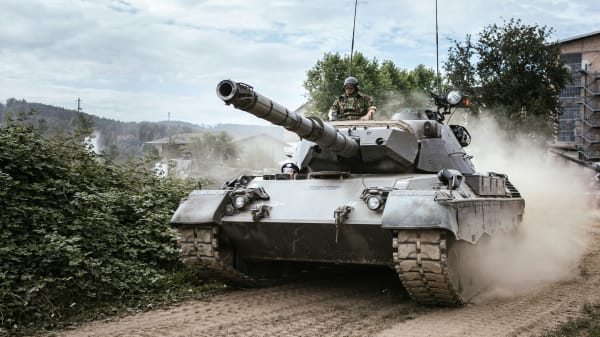Engineering careers in the military offer an exciting blend of advanced technology, innovation, and leadership opportunities that are unmatched by the civilian sector. These fast-paced, high-stakes roles offer engineers the chance to contribute to the safety and security of entire nations, all while gaining invaluable experience and skillsets.
Whether you're a budding engineer fresh out of university or a seasoned pro looking for a new challenge, the military has plenty of opportunities to satisfy your professional development needs. Let's explore the wide array of engineering careers available in the military.
What Engineering Roles are Available in the Military?
In the military, engineering roles are diverse and far-reaching. There are positions for all types of engineers, each contributing in unique ways to the collective mission. Here are just a few examples:
Civil Engineering: Construct facilities and infrastructure necessary for military operations from the ground up, such as airports, bridges, and roads.
Mechanical Engineering: Develop and maintain everything from vehicles and weapons systems to climate control systems and power plants.
Electronics Engineering: Work on communication systems, radar, and other technologies essential to military objectives.
Environmental Engineering: Ensure military procedures are compliant with environmental regulations and assist in the planning of military installations.
Chemical Engineering: Offer expertise on chemical, biological, and radiological threats and assist with the development of defensive measures.
Nuclear Engineering: Assist with the operation of nuclear-powered vessels or handle radioactive materials in a safe and controlled manner.
Computer Science/Software Engineering: Create sophisticated software systems for military intelligence, cyber warfare, and communications.
In each of these roles, working as an engineer in the military means being at the forefront of technological advancements, often working on projects that aren't even on the civilian radar yet.
The Benefits of Pursuing an Engineering Career in the Military
Building a career as a military engineer comes with a wealth of benefits. These range from financial support for continuing education to the ability to work on cutting-edge projects on a global scale. Here are just a few of the perks:
World-class training and learning opportunities: Military engineers receive unparalleled training through rigorous programs aimed at shaping them into leaders within the industry. Many military organizations also offer scholarships or reimbursements for ongoing education.
Variety and excitement: With a broad spectrum of roles available, engineers in the military have countless opportunities to tackle unique, high-stakes problems that can significantly impact the course of military operations.
Job security and progression: Military engineers enjoy job stability and a clear roadmap for career progression. Plus, the experience gained from serving often opens doors to lucrative civilian jobs.
Valuable life skills: The military fosters a range of transferable skills such as leadership, decision-making, teamwork, discipline, and adaptability, all of which are applicable to both personal and professional life.
The Ideal Candidate for an Engineering Career in the Military
Working as an engineer in the military is challenging and requires certain characteristics. Key traits include:
Discipline and Commitment: Being a military engineer requires dedication, commitment, and adhering to strict codes and standards. Engineers often work on critical projects and must be able to perform under high-stress environments.
Resourcefulness and Problem-Solving Skills: Military engineers often work in resource-limited settings or must come up with innovative solutions to complex problems.
Physical and Mental Stamina: Depending on the role, physical fitness may be necessary. Moreover, the pressure associated with such high-stakes work requires mental toughness.
Teamwork Ability: Teamwork is paramount in the military, and this is no different in engineering roles. Collaboration with other military members and civilians is a common occurrence, making strong interpersonal skills necessary.
How to Get Started in Military Engineering
Starting a career in military engineering typically involves the following steps:
Earn a Bachelor's Degree: A bachelor's degree in an engineering discipline is normally required to work as a military engineer. Internships or cooperative education programs can offer valuable hands-on experience.
Meet Physical Standards: Aspects such as age, physical fitness, and health status need to fall within the military's specific standards.
Clear Background Check: Engineers in the military will need to pass stringent security clearance checks.
Undergo Military Training: Before officially starting their roles, military engineers typically complete Officer Candidate School or a similar program which involves rigorous physical and academic training.
Start Specialized Training: Once basic military training is complete, engineers will normally begin a specialized training path relevant to their chosen field.
From protecting the environment to developing advanced combat systems, engineering careers in the military offer fulfilling and influential roles for those passionate about making a difference. By forging a path in military engineering, individuals can navigate a rich, rewarding journey full of unique challenges, cutting-edge technology, and global impact.




